Summer Solstice + Last Quarter: A prayer for water
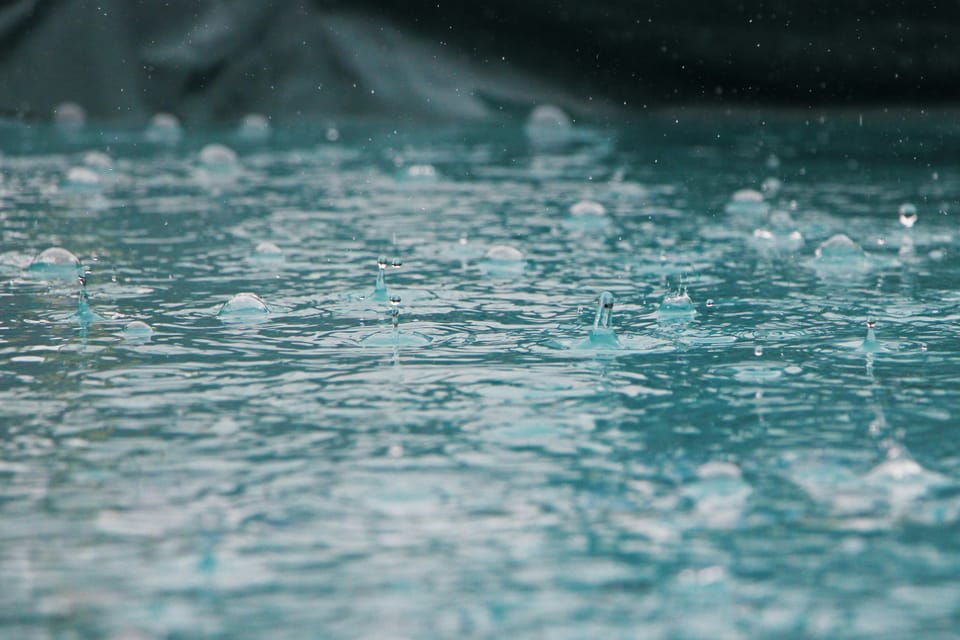
Hello. It's Saturday, and I did not mean to be sending this to you a day late, but last night my body and my medical care team had other ideas. I won't tell the story here today, but I regret the delay almost as much as I regret the interruption to last night's holiday plans. For yesterday was Litha — or Midsummer, for those who prefer a more modern than ancient English name.
At this point in writing Salt for the Eclipse, I have repeatedly discussed the reasons why I frame the solstices within a Germanic cultural context, just as I have also continuously circled back to my refrain that celebrations for the longest day of the year should be examined more critically than simple excitement about light and heat, as the latter is increasingly deadly and winter is increasingly precious. (The most precise thoughts I've offered on this matter are in my missive "Endless summer.") So as I noted the approach of Litha this year, I wondered what I could say about the holiday that I haven't implied many times before, especially when in the week of the Last Quarter I'm already given to discussing eco crisis, social crisis, metacrisis. I especially don't wish to seem as if I dislike Litha and observe it only grudgingly, for that is not the case.
The answer came to me when I thought about one of the main functions of celebrating Litha within my rites. In addition to paying the Oak King his due and hoping for mercy from the Sun at his height, this day is about rain. This day is about water.
So here is a prayer for water, preceded by some sober reflections.
The solstices as water holidays
Many, many ritualists I know who work within a remotely neopagan or neopagan-derived framework — and some who don't — assign correspondences between the four classical elements and either the cardinal directions, the seasons, or other spatial-temporal concepts. This often translates into elemental correspondences for specific holidays in the Wheel of the Year, too. The correspondence systems at play here are quite varied, so in explaining my own elements for the Wheel I do not see things as a matter of me understanding these things better than some other people. It is simply the strongest intuition for my overall ritual focuses, for what makes sense in the landscape where I live, and for honoring what I know of my ancestors' practices.
Within that context, cycling around the compass points I begin at the east, which corresponds to air; the most powerful storms here typically blow from this direction. Turning south, this corresponds to fire; the further one travels in this direction from where I live and where my ancestors live, the warmer and more sunlit it becomes. Turning west, this corresponds to water; while storms come from this direction as well, the weather from this direction is usually kind and peaceful, keeping the natural flow of things. And finishing at the north, this corresponds to earth, rooted in the gravity of one magnetic pole.
And as the cycle of elements around the compass goes from air to fire to water to earth, so too spins the Wheel of the Year. The equinoxes belong to air, as the most intense winds of change — transitioning between the dark and light halves of the year — are heralded at those times. The cross-quarter days on November 1 and May 1 belong to fire, as fires are lit to both welcome and ward against the dead and the fey crossing over from the Otherworld. The solstices belong to water, as at each it becomes imperative to pray for precipitation, which I will explain in just a moment. And the cross-quarter days on February 1 and August 1 belong to earth, as these days mark the start of the planting season and the start of the harvest.
To elaborate on the relationship between solstices and water, then: while it's worth debating whether to count each solstice as the beginning of winter or summer, or to count it as a midpoint, in either case the solstices mark meteorological and ecological milestones on this landscape as much as solar ones. By the end of December, not much snow has usually fallen, but it should begin soon, along with the coldest temperatures, and this is critical for allowing plants that require a winter snowpack and freeze to adequately regenerate and germinate; it's also critical for reducing wildfire risk, as this region's wildfire season (which does exist, and is getting worse) is early spring due to temperatures and winds picking up with a bunch of dead leaves and other tinder on the ground. By the end of June, we have usually and hopefully had some spring rains a couple months prior to kick off the growing season, but we simultaneously enter into what is relatively the driest time of year and the most critical time for any rain to fall; no matter how much moisture has been saved in the soil through winter and spring, if there's no rain in summer then this water will eventually dry up, and meanwhile there is nothing to break the heat that will wilt and kill sensitive plants.
So at each solstice, I beseech the element of water to fall upon us in plentiful amounts. And — I also ask that it not fall too much. May the snowfall only be enough, without destructive blizzards. May the rainfall come through only gentle showers and mild thunderstorms, not through hurricanes or derechos, and no more water than what our lakes and rivers can handle.
And sadly, receiving exactly the right amount of water, neither too little nor too much, is going to become more difficult for my bioregion in the future. And for nearly everyone's.
The breaking global water systems
One reason I prefer to say "eco crisis" instead of "climate crisis" is because the climate is typically equated with global heating and not the full array of other negative effects that extractive-colonial capitalism has had upon our planet. And the crisis in question has as much to do with water as with air. The way that water behaves across the continents, through the oceans, and within the atmosphere — it is all impacted by what happens to average temperatures, and it's affected by related but causally distinct issues like pollution, habitat destruction, and so on. And then whatever collapses within our water systems in turn perpetuates more of those other systems' collapses.
We are in a dire situation with water, and I'm going to speak in the present tense here, not the future, because all of this is already happening and it's only a question of how far it will really go. Many places that are becoming uninhabitable due to severe year-round heat are achieving this status through stagnated weather patterns that also cause massive droughts. Many places that haven't become quite so dangerously hot have still become so drought-prone that supplying the population with safe drinking water is nearly impossible, thus still prompting a mass exodus; even in less severe cases where people can still drink water and practice the types of agriculture they're used to, the wildfire risk has magnified enormously. And all the clouds and rain that don't wind up in their usual places are being concentrated in other areas, causing historic and often disastrous flooding.
These things are complicated to handle on their own, but they are just one aspect of the whole water crisis. Free water is being actively stolen from communities by corporations, either to sell back to those same populations or to sell on the other side of the globe, and increasingly to cool devastating machinery that overhyped computational technology relies upon. Rivers dammed for exclusively human-serving purposes have deprived ecosystems of necessary resource exchanges between materials that flows downstream (such as mountain minerals) and material that's delivered upstream (such as through salmon runs); as these ecosystems suffer, extinctions further accelerate and indigenous lifeways that depended on certain rhythms are further damaged. There are cascading effects from the ocean heating and acidifying; not only does this change the composition of ocean life, but it impacts the processes by which phytoplankton byproducts contribute to cloud formation. In some less likely but still terrifying potential scenarios, with too few phytoplankton there would eventually be too few clouds and much of the classical water cycle might halt altogether. We should never take anything for granted.
As of a couple years ago, the World Resources Institute[1] has estimated that 25% of humans today wind up using all the water that's available to them each year, leaving no surplus. In most of those people's cases this is not their own wastefulness; it is that there just isn't enough water for them right now in those locations. Major cities regarded as at risk of running entirely out of safe water in the very near future include Beijing, Beirut, Bogotá, Cairo, Delhi, Jakarta, Johannesburg, and Mexico City. Some of these city names may be surprising because of how they are prone to monsoons, but even monsoon rain means nothing if the waterways where it's collected are constantly polluted; also, monsoon patterns are changing. And whether a city runs out of water for just a few weeks or for years, the consequences are unfathomable — just as a large enough flood can devastate human habitation for years or decades.
The rains of summer in my region
I am profoundly lucky to live somewhere that is expected to receive more rain, not less, in virtually every global heating scenario past 1.5ºC. This means that it would be prudent to avoid moving out of this bioregion if at all possible, for my sake, my owner's, and the sake of any descendants we may ever have. Of course, it is possible we may not have a choice, but I will then be very afraid to move anywhere that isn't so fortunate.[2]
Because of this land also developing shorter and milder winters, between that and the cumulative extra water it's ironically possible that by the end of the century this will be one of the "best" places to farm or garden across Turtle Island. I say ironically because besides the historically narrow growing season, the soil here is typically a bit acidic for what some industrial crops prefer, and more importantly the composition is notoriously challenging — low in nutrients, high in glacially deposited rocks that interfere with root or tuber systems and make tilling much harder.[3] There's no question that when the woods and river valleys and coastlines were entirely managed by their traditional stewards, who represent a variety of Algonquian tribes, an abundance of diverse plant life flourished according to what this bioregion can actually best support; but this land has also been colonized for longer than anything further west, and the results show. It's therefore a sad paradox that many settlers whose ancestors moved west may soon feel pressed to move back here.
And I also want to practice gratitude for living here, and to use this as further motivation to live in right(er) relationship with not only the land itself but also the people who originally belong to it. However, even in acknowledging my luck and responsibility, all of this comes with a price of sorts. I live in increasing fear of floods, and this is not idle anxiety even if my mind is certainly capable of inflating the risk beyond what it really is. In the past few years here, it's become commonplace in summer or autumn to receive multiple inches of rain in a dangerously short time; I now outright expect to receive several county-wide flood warning alerts in either of those seasons. A couple of years ago, one small city terrifyingly near me had its downtown roads virtually washed out overnight by an eleven inch downpour. The hand of this god is naturally capricious, for on that same night my town received only half that amount and thus experienced some issues — our basement certainly got a bit of water[4] — but no disasters. Nevertheless, sitting through a fall of even "just" five inches felt apocalyptic by the standards of this region, because it was.
This is to say nothing of the increase in hurricanes that have tracked this far north and had effects this far inland, or of the increase in tornado warnings. When I was young, hurricanes belonged to the South, and tornadoes belonged to the Plains.
The truly strange aspect to all of these system collapse symptoms is that this region is one of many where even with increased annual rainfall this is not always going to translate to having an adequate water supply on a daily basis. Much of the rain we can expect to receive in the future may often be too much at once, broken up with severe droughts like the one that we just endured from roughly last June through a couple months ago. By and large the prediction is that this place's future resembles what the (now rapidly drying) Pacific Northwest used to be like; but with flood-drought cycles on the table, anyone farming, foraging, hunting, or fishing here, even doing anything here, is going to have to adapt many practices to account for such erratic patterns. I am only just beginning to understand what may help and what may not. Even vastly more experienced land-keepers often are grasping at straws.
But we must figure it out somehow. Not just to support those of us who already live here (equitably or not), but also to support the vast numbers of people whom we can expect to arrive from the outright uninhabitable places. We need to fashion this land into a sanctuary it's never had to be before.
The water prayer
This is our blood.
This is our, and this is we.
The binding, and the joining. My sea is your river, and the lake is the cloud, and the dew is the sweat. And tears. And blood.
What lives, what we know, is water, water priceless and holy to creation. So too we are earth, but without water the earth could not have made more of itself. So too must we breathe air, but air is not where we were born. So too do we (the we of we, ape-children) owe ourselves to fire, but water is the first elder, and the last. By water the energies are moved within us, the energies plain to see and the energies smaller than a speck of dust. In water the first We stewed and fermented. In waves we hear birth and death together, undistinguished.
This prayer to the water is a prayer to us and to all:
We are in the withering. If the stream does not flow from the mountain, what will bloom in the valley? If our love does not flow to the furthest edges, what souls will waste, neglected?
We are in the drowning. If the sea cannot be frozen, what will she swallow? If our desire flows where it can only damage, what beauty will rot and stagnate?
The cords are cut, the veins are clotted. The communion is not shared, and the libation is not poured. The walls are built like dams. The borders are built like dams. The screens hold our gaze where the entropy accumulates. The salmon cannot spawn. The whale cannot sing.
This is our blood, pooling.
I (still neonate) do not know well the lord of rain, nor any lady, nor any other. My god has not plainly worn those faces. But I must beseech in the manner of those whose water passed to me. I look to the lord with the crashing, rolling wheel, and I look to the lord with the cracking, swinging hammer, and I ask with hands raised in the so-bright light, in the withering and drowning green, lord give us yourself (ourself) just as we need, knowing when to deliver and when to retreat.
Help us remember that we flow between, that the lines are never fixed, that we glide and fill, that what penetrates envelopes.
Help us wash off what we do not need, and help us drink what we are missing.
Help us surrender when we are meant to float away, and help us with kind, straight currents when we are meant to steer.
You are we. We make rain together.
[1] Itself a fairly colonial institution, so whatever it assesses as "bad" is probably even worse than they think.
[2] This is besides the many other reasons that uprooting ourselves would be extraordinarily difficult.
[3] Not that we should be tilling very often, but I go back and forth on whether it makes more sense to go no-till or just low-till.
[4] Assisted by some intrusion issues we've been struggling to troubleshoot effectively for years.
Thank you for reading, and I hope that you had more time to observe the sacred day than I did. I am at least making up for it a little today, and I'm grateful to not have had a real health crisis, just an industrial medicine nightmare. And next week I will have a post for paid subscribers, and it will elucidate my complete perspective on the ethical (and unethical) use of animals in ritual and mundane life. The following public post will then be the next installment in this year's zodiac series, focused on the politics of motherhood for Cancer season.
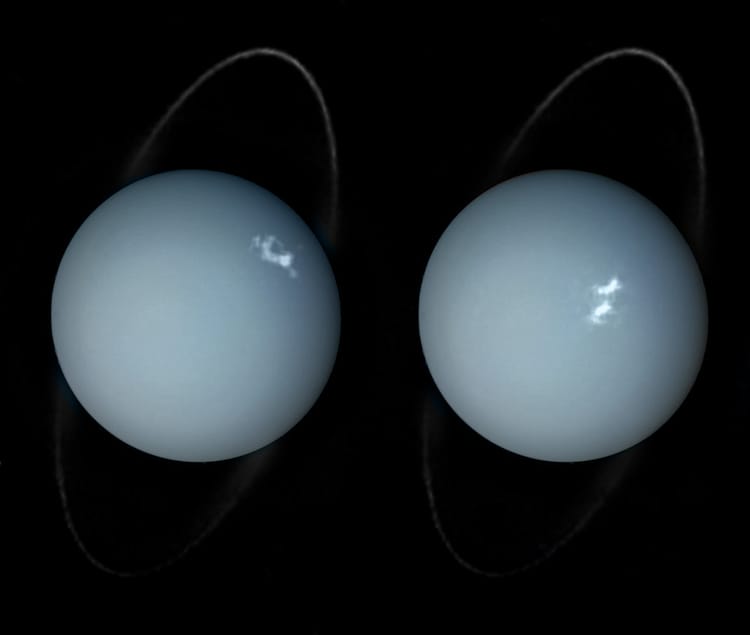
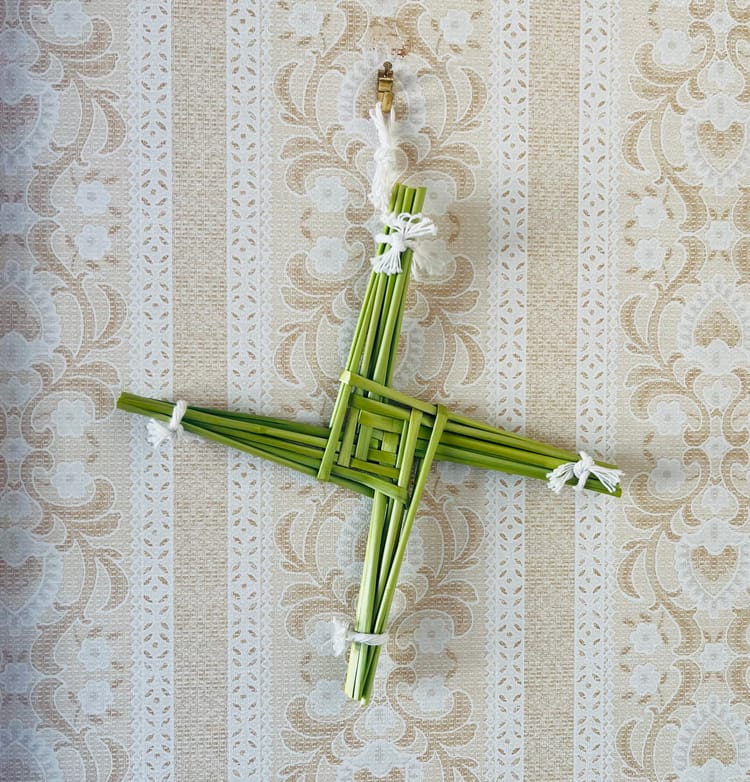
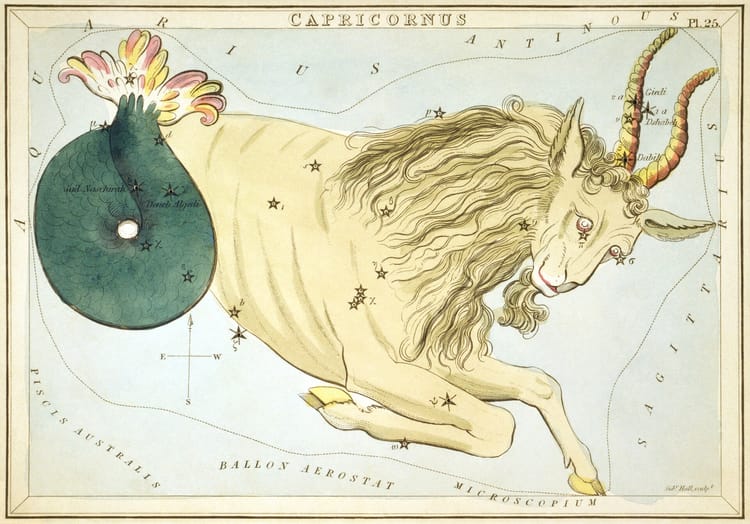

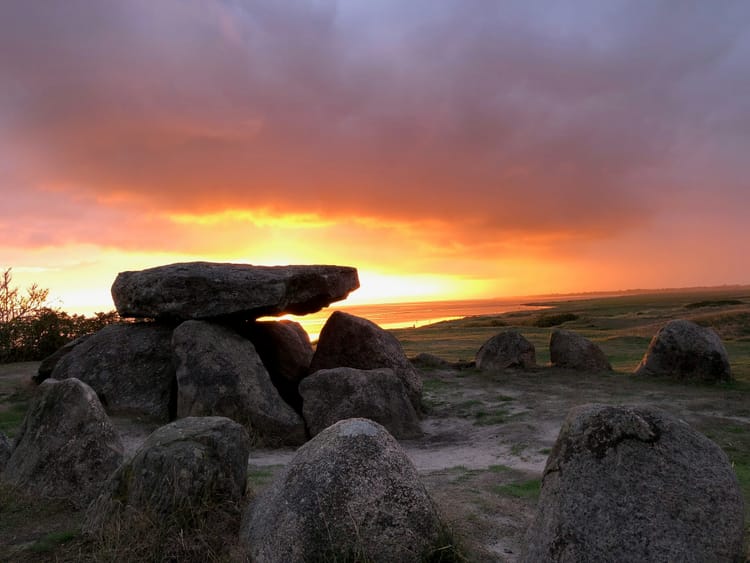
Member discussion